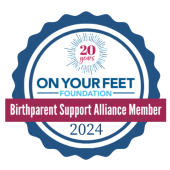
It’s true that the adoption process involves extensive paperwork, but each document is essential for ensuring the child’s safety and stability. Understanding these requirements can make the entire process clearer and less stressful.
Requirements can vary depending on the type of adoption (domestic, international, or foster care) and the specific laws of the state or country involved. So, it’s important to work closely with your adoption agency and legal advisors to ensure all necessary documents are correctly prepared and submitted.
In this post, we’ll look at the important documents needed for the adoption process and explain how each one helps make the adoption successful.
Checklist of Essential Documents for the Adoption Process
- Adoption Application
- The Home Study Report
One of the most essential documents in the adoption process is the home study report. This comprehensive evaluation includes background checks, financial statements, medical reports, and interviews with all household members. The aim is to assess the readiness and suitability of the adoptive family. It’s not meant to be intimidating; rather, it’s an opportunity for the family to showcase their motivations and preparations for welcoming a child into their lives.
Interviews are conducted by a licensed social worker who will visit your home multiple times. These visits provide a chance to discuss why you want to adopt, your parenting philosophy, and how you plan to integrate the child into your family. Additionally, a home safety inspection ensures that your living environment meets specific standards. Once your meetings with the social worker are complete, a home study report will be written, indicating your readiness to adopt.
- Personal References
References from people who know you well provide additional insight into your character and suitability as parents. Typically, you will be asked to provide three to five references. These can be family members, friends, colleagues, or community members who can vouch for your integrity, stability, and readiness to adopt.
It’s advisable to choose individuals who can speak to your parenting abilities, your relationship with your partner, and your interaction with children. These testimonials add a personal touch to your profile and help adoption agencies understand your support network.
- Medical Reports and Health Statements
Your physical and mental health are vital components of the adoption home study. Both adoptive parents must undergo an examination by their physician to verify that they are in good health. This includes an assessment of their physical, mental, and emotional health and any ongoing treatment they are receiving.
Doctors will provide health statements confirming your ability to care for a child. This step not only reassures the agency but also gives you peace of mind knowing that you are physically and mentally prepared for the responsibilities ahead.
- Financial Statements and Employment Verification
- Background Checks
Background checks are mandatory in the adoption home study process. They are conducted to ensure the safety and well-being of the child. These include FBI and State fingerprint checks, child abuse registry clearances, and sex offender registry checks.
The goal is to protect children from potential harm and to confirm that prospective parents have no history of behavior that could jeopardize a child’s welfare. It’s crucial to be transparent during this process. Any past issues should be disclosed and discussed openly to avoid complications later on.
- Education and Training Certificates
Many adoption agencies require prospective adoptive parents to complete adoption-specific education and training courses. These courses may cover topics such as parenting an adopted child, cultural competency, the birth parent experience, and supporting a child who has experienced trauma.
Certificates of completion for these courses are essential documents that demonstrate your readiness and commitment to the adoption process. They also equip you with valuable knowledge and skills to better support your adopted child.
- Consent to Adoption
Consent to adoption is a critical document wherein the birth parents officially relinquish their parental rights and consent to the adoption. Depending on the state it is signed in, it may be referred to as a “Surrender”. This document must be signed voluntarily and without coercion, typically in front of an agency representative, attorney, or judge.
For international adoptions, additional consents may be required from the country of origin’s government or other legal entities. Ensuring the validity and proper execution of these consents is crucial to avoid complications later.
- Adoption Placement Agreement
Once a the birth parent has completed a consent to adoption, the adoptive family will sign a Placement Agreement, officially accepting placement of the child with their family. This document outlines the terms and conditions of the child’s placement with the new family. It includes specifics such as the responsibilities of both the adoptive parents and the agency, and any post-placement supervision arrangements.
This agreement serves as a formal acknowledgment that the child will be placed in your care and specifies the legal obligations you must fulfill. It’s essential to read this document carefully and ensure you understand all aspects before signing it.
- Legal Risk Acknowledgment
In some cases, especially with domestic adoptions, there is a period called the “legal risk” phase. This occurs when the birth parents’ rights are not yet fully terminated, and they have a period during which they can change their minds about the adoption.
Adoptive parents must sign a legal risk acknowledgment form that outlines the potential for changes during this period. This document underscores the importance of being prepared for all eventualities and understanding the legal nuances involved.
- Citizenship and Immigration Documents
In international adoptions, securing citizenship and immigration documents for the adopted child is paramount. This process involves obtaining a visa for the child to enter the adoptive parents’ country and applying for their citizenship.
The Hague Adoption Convention governs intercountry adoptions and ensures that these processes are carried out ethically and transparently. Adoptive parents must follow specific guidelines to meet all legal requirements, ensuring the child’s seamless transition into their new home.
- Travel Documentation
Additionally, for international adoptions, travel documentation is a significant part of the process. This includes passports for both the adoptive parents and the child, visas, and travel itineraries. Ensuring all travel documents are in order is crucial for a smooth adoption journey.
Travel arrangements must be planned carefully, considering the legal requirements of both the adoptive parents’ country and the child’s country of origin. Working closely with your adoption agency and legal advisors can help navigate this complex aspect of international adoption.
- Finalization Decree
The finalization decree is the legal document that officially completes the adoption process. It is issued by the court after the adoption hearing. This decree recognizes the adoptive parents as the child’s legal parents and indicates the final termination of the birth parents’ rights.
Once this decree is signed, the adoption is legally binding, and the child is granted the same rights as a biological child within the family. This moment marks the culmination of months, sometimes years, of effort and preparation, and is often celebrated with a finalization ceremony.
- Post-Adoption Contact Agreement
A post-adoption contact agreement outlines the terms of ongoing communication between the adoptive family and the birth parents. In open adoptions, this document may serve as a guideline for maintaining a relationship with the birth family.
These agreements detail how and when contact will happen, including visits, phone calls, and the exchange of photos or letters. While the terms may be flexible, they should be clear enough to manage expectations and ensure consistency for the child’s sake. In some states, Post-Adoption Contact Agreements can be legally binding.
Are you ready to take the next step in your adoption? Visit the Adoption Center for Family Building for comprehensive support and resources. Our experienced team is here to guide you through every stage of the adoption process. If you have any questions or need personalized assistance, don’t hesitate to contact us. Let us help you build the loving family you’ve always dreamed of.





